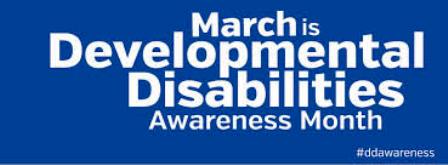
March was proclaimed “Developmental Disabilities Awareness Month” by President Ronald Reagan in 1987. President Reagan asked Americans to work toward providing both “encouragement” and “opportunities” to allow those with developmental disabilities to achieve their potential. In doing so, Reagan has given us all a chance to recognize the vast array of abilities and talents of those with disabilities.
I know many wonderful individuals both personally and professionally who live with developmental disabilities. I am both pleased and honored to work in a field where I can provide assistance to this population through advice, Special Needs Trusts, and advocating for their rights. I am also very excited to be a part of NAELA, a national attorney organization who fights for the needs of this population through public policy.
In honor of this month, I want to highlight a few of the legal avenues available to families supporting individuals with developmental disabilities.
-
The first and most relevant tool families have to assist loved ones with developmental disabilities is what is known as a Special Needs Trust. The purpose of a Special Needs Trust is provide supplemental care for an individual with physical or developmental disabilities that will not affect their eligibility for public benefits. The care and well being of the individual can be carefully planned for.
-
Another important legal avenue friends and family members have to care for special needs individuals is through a Guardianship or Limited Conservatorship. A guardianship is a court proceeding for those individuals age 17 or younger. A guardianship seeks to appoint an individual to care for the minor if a parent cannot act. A limited conservatorship, on the other hand, is for individuals 18 and older. A limited conservatorship is a unique type of conservatorship that is typically used only for individuals with developmental disabilities. A limited conservatorship is obtained through a court proceeding. The purpose of the limited conservatorship is to appoint a conservator, or caregiver to assist the special needs individual with the management of their care. The California Probate court’s goal when working with limited conservatorships is to maximize the independence and self reliance of the individual while ensuring the appropriate legal means are in place should they need assistance.
-
The third legal avenue family members have to provide assistance to loved ones with developmental disabilities is hiring an attorney to advocate for their rights and well being. For example, in a case I had recently, an aunt wished to get a limited conservatorship over her developmentally disabled nephew in order to protect him from another relative. In their case, a limited conservatorship may not have been necessary had the predatory uncle not been making advances toward the nephew. In another case I have, a divorced father and mother have a limited conservatorship over their daughter. Contrary to their agreement, the mother has been denying visitation rights to the father. While this type of matter would usually fall to a family law attorney, it must go through the probate courts because it is a limited conservatorship.
The Special Needs Population and their devoted caregivers must be recognized and honored for the role they play in our society. As a child, I frequently worked with Special Needs individuals in my mother’s horticulture classes at DVC, which were supported by Contra Costa County to enhance the lives of developmentally disabled individuals in our county. I greatly enjoy getting the opportunity to work with this population in my adult life, and I hope that everyone will join me in celebrating National Developmental Disabilities month!
